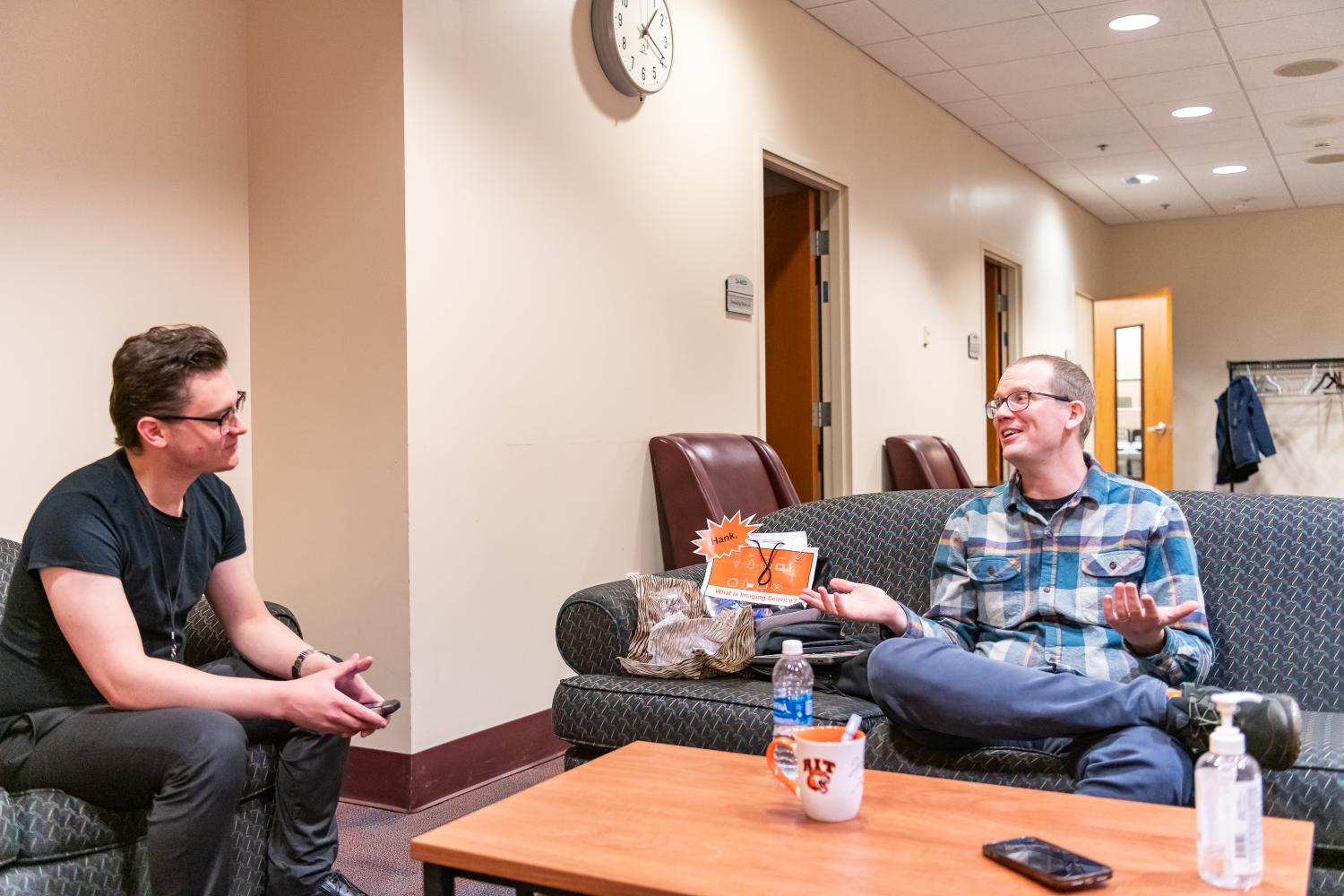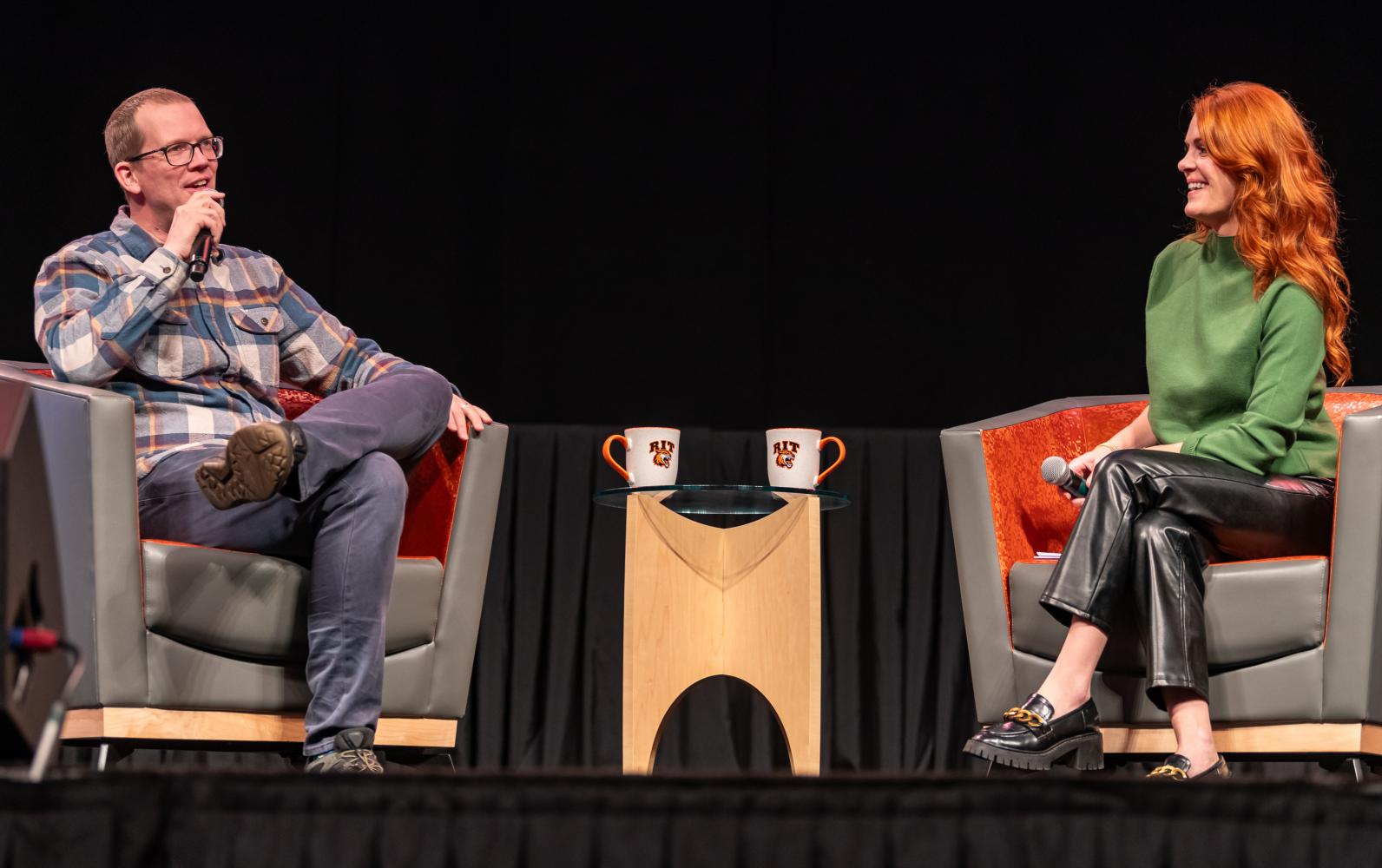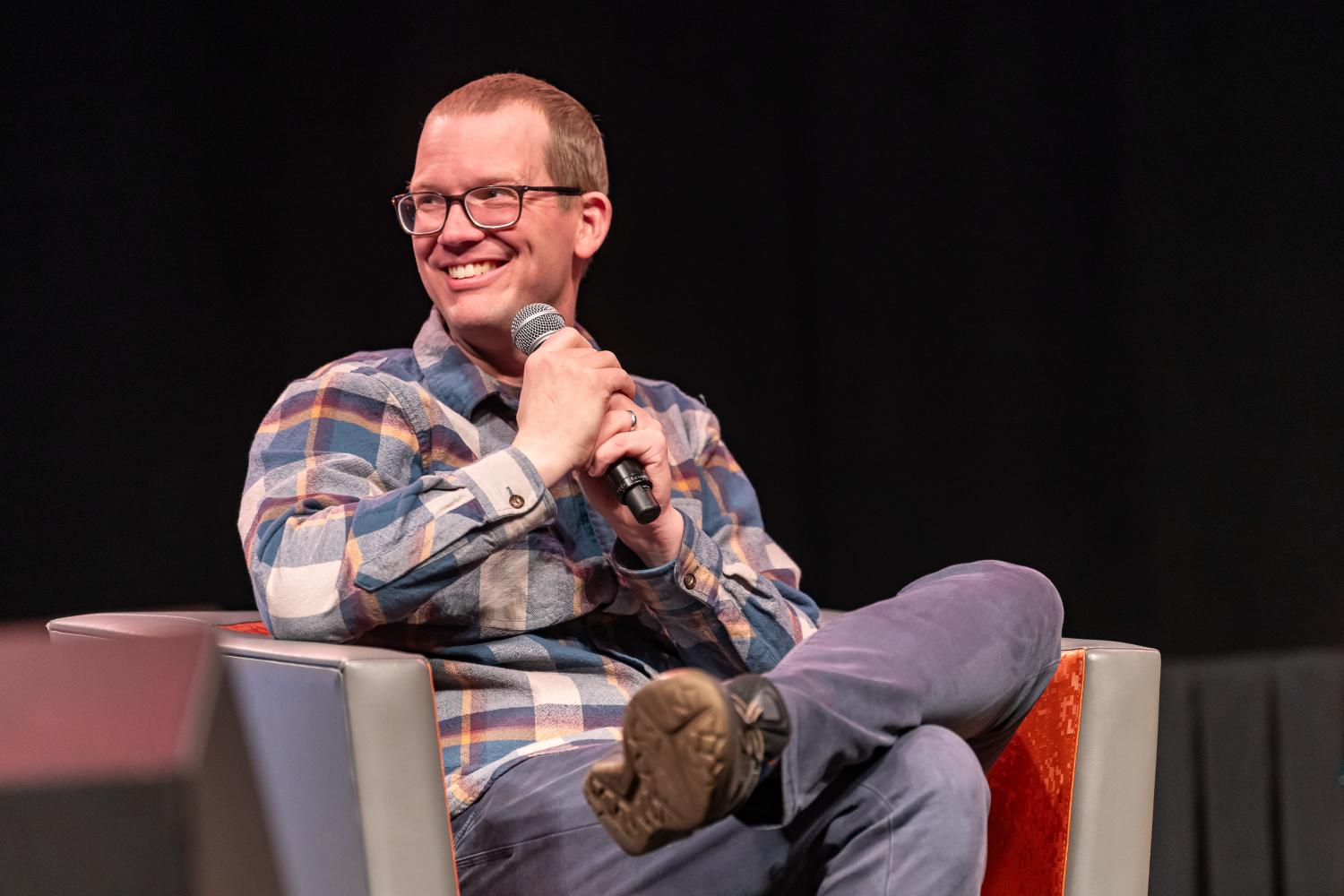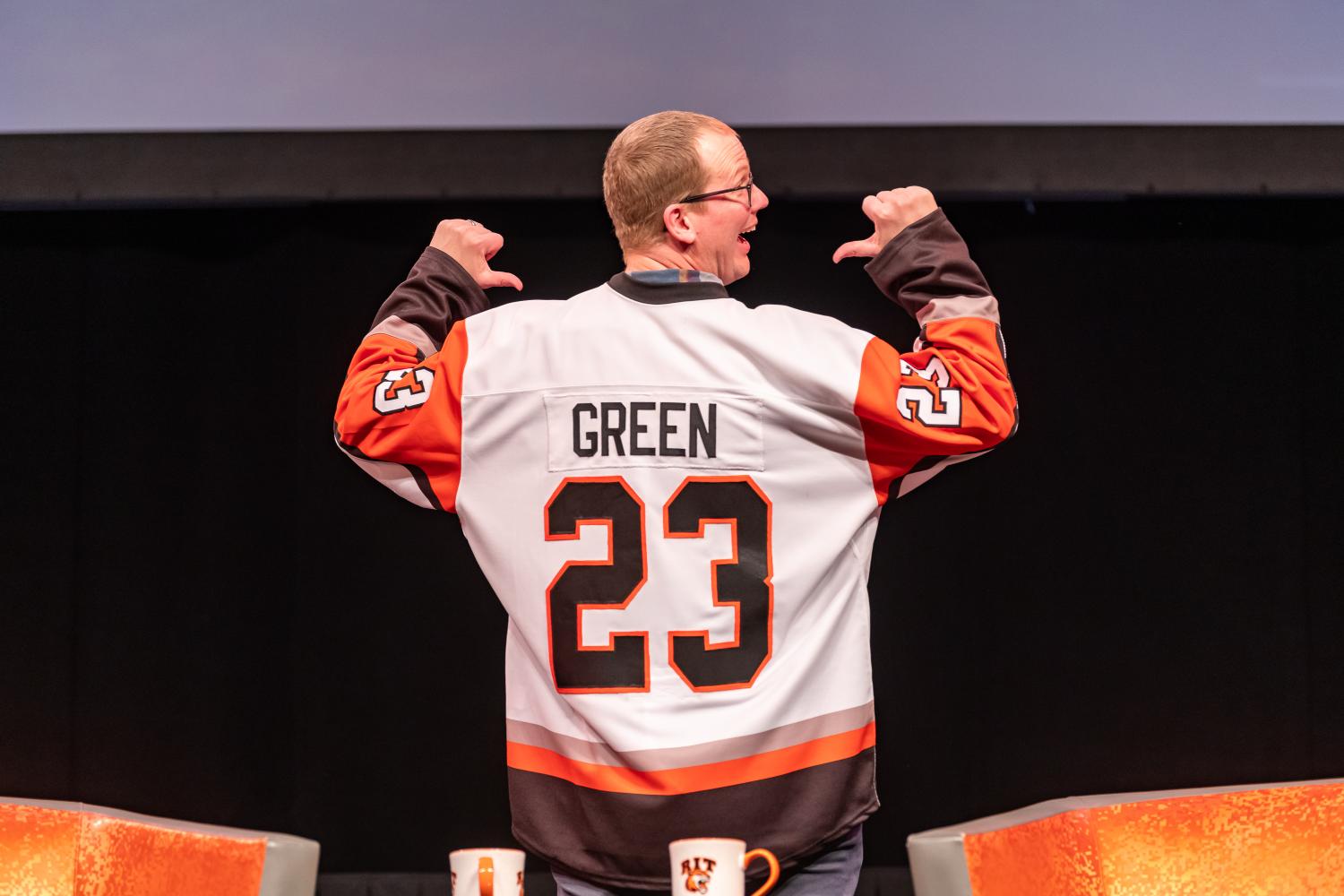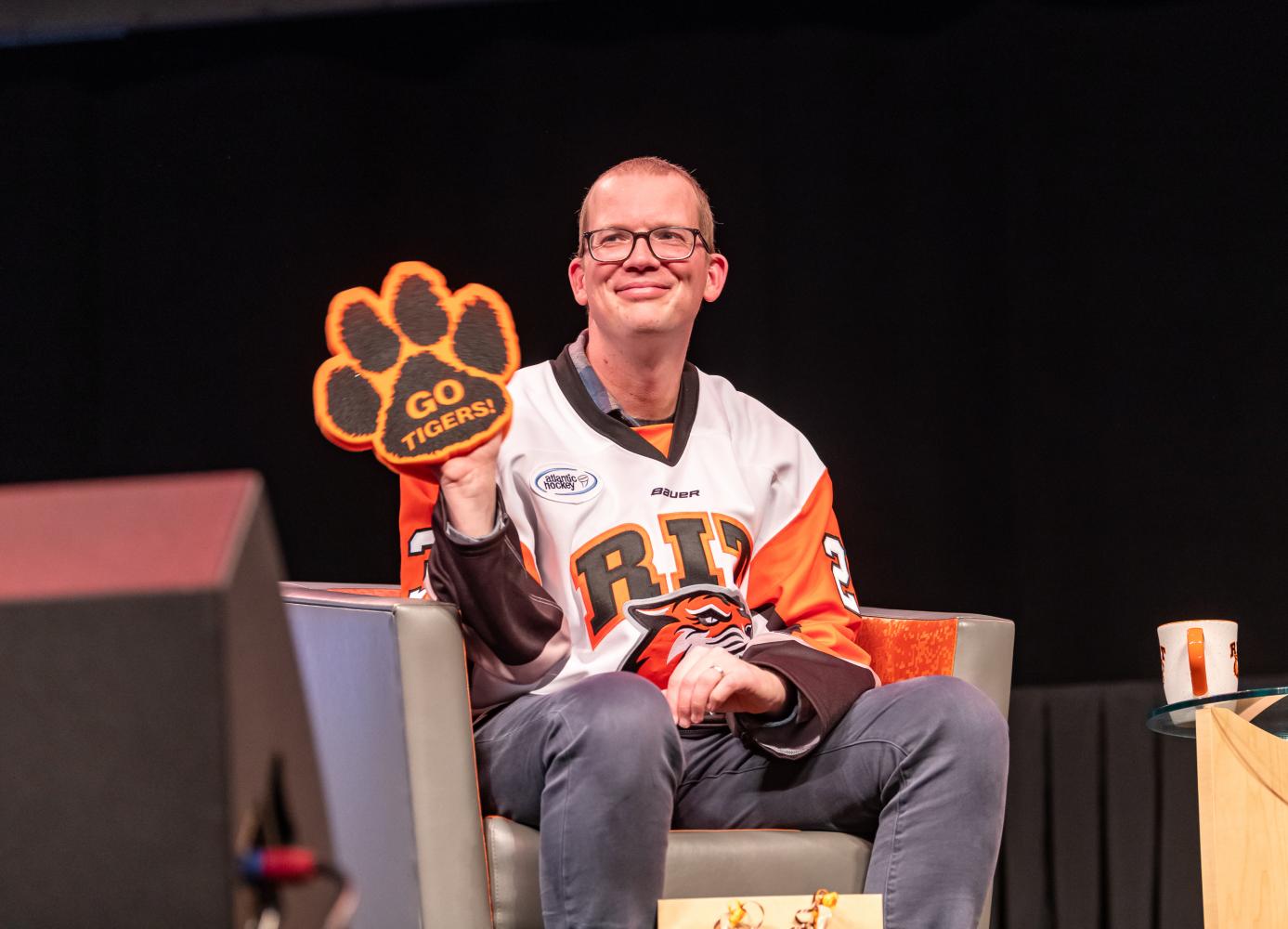Cancer, Career Choice and CrashCourse: A Conversation with Hank Green
by Jake W Streamer | published Oct. 18th, 2023
On Oct. 14, 2023, as a part of the university-wide Brick City Weekend, popular vlogger and author Hank Green visited campus for an hour-long Q&A moderated by Editor-in-Chief of CITY Leah Stacy.
During his short stay in Rochester, Green volunteered some of his time to a separate interview with Reporter.
Question (Jake Streamer): This is one of your first public appearances in quite a while. You have been extraordinarily public about your health, considering how most public figures prefer privacy. What was behind this decision? Have there been any other challenges for you because of this?
Answer (Hank Green): Ultimately, [being public] was a thing that I knew I was going to [do]. People were going to know. I had to tell people what was going on, like why is my hair falling out? Why am I canceling events? So it wasn't something I couldn't say wasn't happening. Once I was talking about why it was happening, it's just like, I always feel like [I had] a really deep obligation to the people who consume the content that I make and have supported me in so many ways. That, at the very least, I want to keep those people updated. But as long as I'm doing that, it's sort of like door-open-door-open-door. And the last door that opened is [that this experience] is a science story. There's going to be a lot of science [happening], it's going to happen to me. I'm going to be reading papers about how my cancer treatment works because I want to understand it. I'm going to get to talk to oncologists and physicists, and I'm going to be reading a lot of books about this. S once I sort of felt like it was a story that involved me, [it was] a frame where I was like, ‘Oh, I'm comfortable with sharing this.’ The thing that I worry about is the mental challenge of being sick, and the fear and what it's like to confront mortality. I don't really talk about that stuff that much. And that isn't that a big problem, because mostly, it's just been good news since the diagnosis. But it might not always be. So that is the thing that I worry about. If I'm one of the rare cases where this particular kind of cancer goes badly, which can happen, then it's just gonna be sad, and not fun.
Q: A lot of your work with your nonprofits, and especially your educational work with PBS, is work that contributes to what we could call 'the public good.' How can college students approach career choice with a conscience?
A: It's tricky. I have friends who work in the defense industry, and you know that they maybe have a slightly different worldview than I do. I also think that it's very easy to be a YouTuber and just focus on doing good things. But the world is complicated and messy. I wouldn't want there to be no engineers working on getting fossil fuels out of the ground – we shouldn't turn it all off, because the whole world would crash –but the folks who are working on hydraulic fracturing for natural gas in the past are going to be working on geothermal in the future. And hopefully, the world heads in that direction. More and more, it's looking like engineering is the way out of conflict, the way out of global warming and the way out of our reliance on limited fuels that aren't going to carry us forward forever.
Q: Your educational videos are assigned here, and across the nation, sometimes in 100 and 200-level college classes. Do you consider yourself an educator? How are you interested in teaching such a wide array of subjects?
A: I mean, Crash Course has a ton of different people who make crash courses, it's not just me. [However,] in some of these topics, I'm very actively involved in the scripts and what the words are coming out of my mouth. But I also [don't always know]. [I hosted] a philosophy course because [CrashCourse] couldn't find another host. They put me down and I had no idea I was [doing] like, I'm just saying what you're telling me to say.
Q: So, you hosted CrashCourse philosophy because no one else would do it?
A: There was certainly someone else [who] could have done it, [but] we had a very weird deadline crunch. We had a problem, like a logistical problem. So [CrashCourse] sat me in the chair and had me do it. So CrashCourse isn't like me, alone. I don't edit the videos. I don't do the graphics. I don't write the scripts. In the early days, I was doing a lot more of that stuff, [but not anymore].
Q: Out of everything that you've ever learned, what's been the most interesting topic to you?
A: I think in terms of how applicable it is and how much it explains is, evolutionary biology.It has implications on human health and on ecology. I think life is probably the most interesting thing that's happened in the universe so far, except for maybe people, who needed life to happen. I end up going back to it and thinking about it, and having [the ecological frames of evolutionary biology].. being very useful in everything. I think about culture that way that like things that work, work, and things that make more of themselves, there will be more of them. That's just what evolution is. That's how religions function. If religions die out, they didn't make more believers.
Q: Hank, is there anything else that you'd like to leave the RIT community with?
A: Care about stuff, care about each other. Support each other, ask for favors, we're not dying. It's a really big deal for me, especially coming out of cancer right now. It felt better when I felt like I could ask people for anything.



